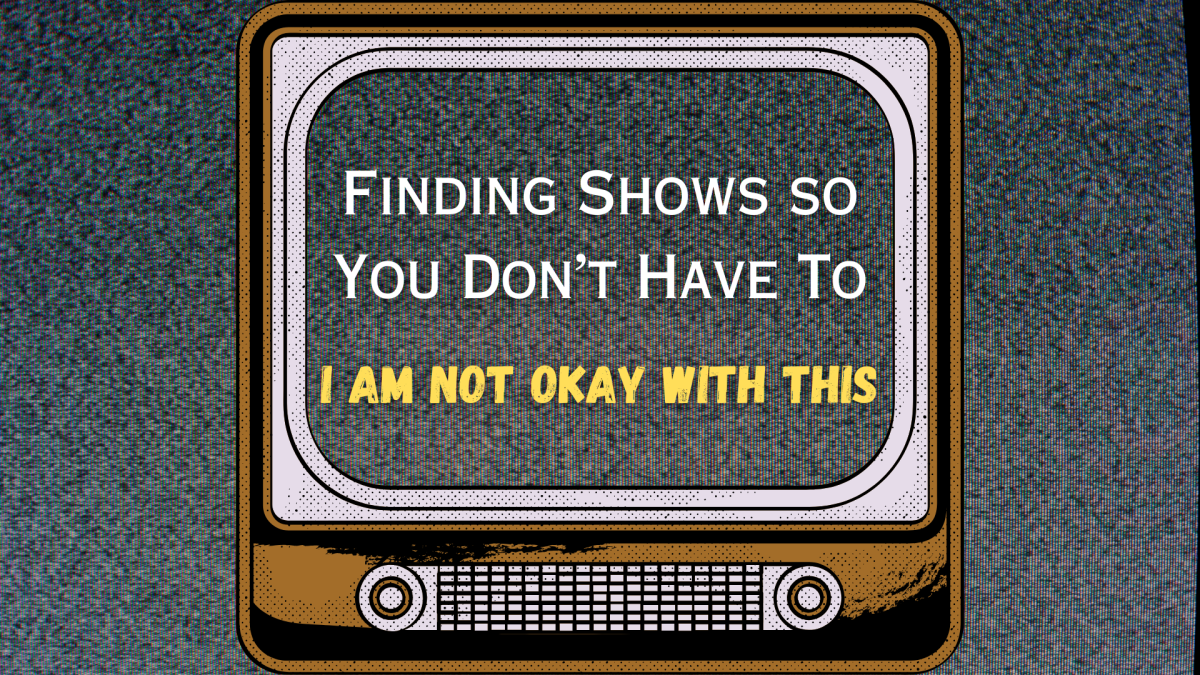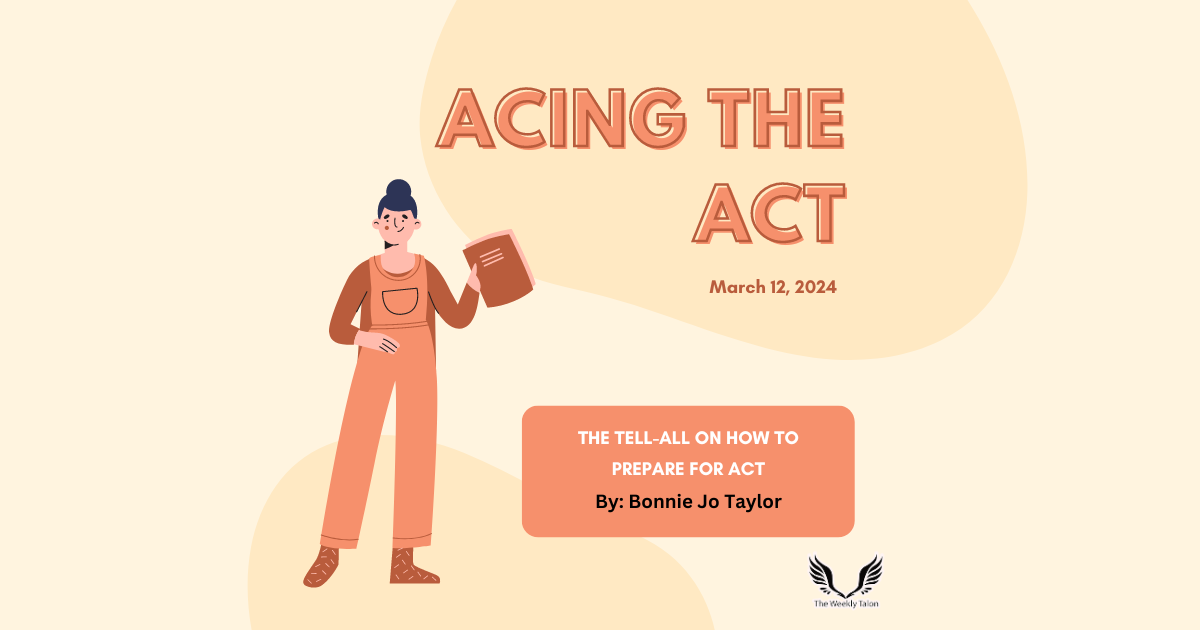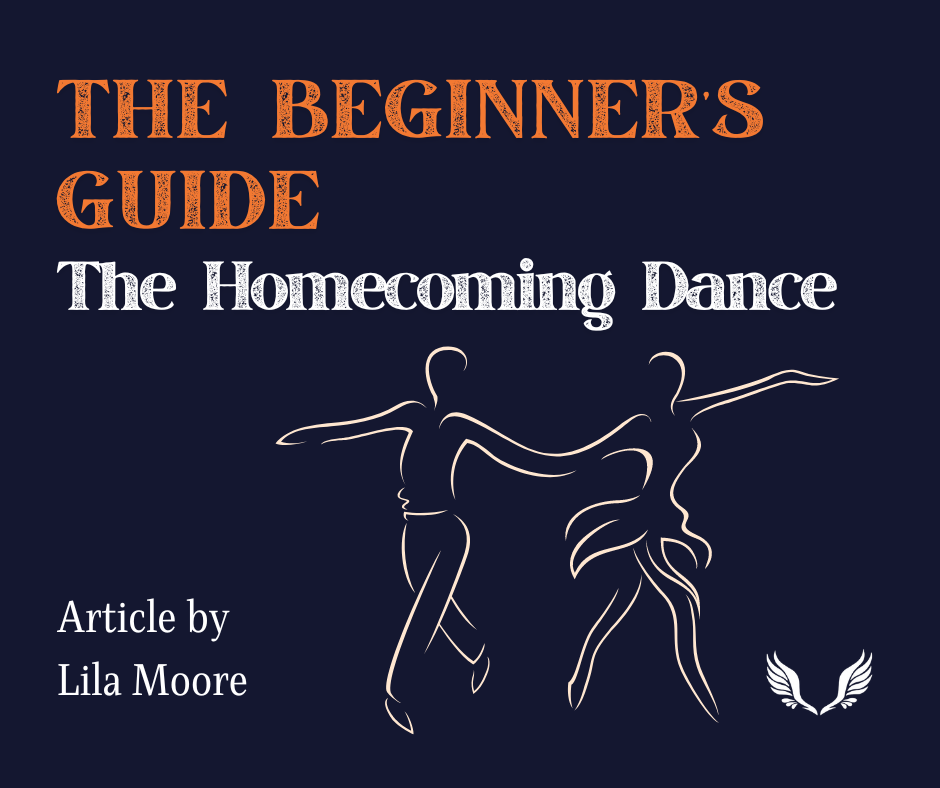The countdown is on. There is less than a week to go until the ACT is administered. The test will be given Tuesday, March 12th, to current Davie High juniors for free. With the date for the test quickly approaching, it is important to keep in mind some important reminders and some handy tips to stress less and feel more confident about this exam. Contained within this article is some very important information regarding the ACT and, as promised, helpful tips about test taking from both the web and Davie English teachers and some personal advice from someone who has already taken the test (aka your friendly article author!)
The official ACT site has three tips when it comes to preparation for test day itself, which have been taken directly from the website and elaborated upon below.
1. Get Familiar With The Test
The first point suggests getting familiar with the test and its contents. It makes it a lot less imposing whenever you take a look at how the test will be structured, given to you, and what will be on it. Included below is a general layout of the test, the number of questions per section, and the amount of time you are given to complete each section:
- Section 1: English, 75 Questions in 45 Minutes
- Section 2: Math, 60 Questions in 60 Minutes
- Section 3: Reading, 40 Questions in 35 Minutes
- Section 4: Science, 40 Questions in 35 Minutes
2. Identify Areas to Improve
The second suggestion from the ACT website is to find areas of study in which you need to improve your skills. This can be quite scary for those of you unfamiliar with the ACT or tests similar to it. The test is designed to be difficult as it is meant to challenge you to the fullest of your limits. The most important thing that you can do to prepare yourself for the kind of content you will see is to take practice tests online or in the books that are offered. It is also imperative to pay attention in math, English, and science classes to pick up as much material as possible.
Below, I have included a basic summary of each of the four sections of the ACT and what they cover. For more information, you can access the PDF that this information is taken from, which contains more specifics about how to study and the content contained within the sections.
- Section 1 (English): This first section tests your knowledge of grammar and structural rules in the English language in written form. You will be provided several passages to read that have grammatical or structural errors contained within them and prompted to choose the best replacement for the selected portion. The question can cover a single word, a part of a sentence, or a whole paragraph and will ask you to find the most correct change for the passage.
- Section 2 (Math): This section will test your knowledge of math topics, covering all content that is expected to be taught by the beginning of senior year. The purpose of this section is to ensure that students taking the exam are prepared to take entry-level college mathematics. It is important to note that you are permitted to bring and use your own calculator. Though it is not required, it is HIGHLY recommended.
- Section 3 (Reading): This section tests your reading comprehension and will have you answer questions based on the passages you will read. Similar to how most English class comprehension tests work, you will be asked questions about the plot, the style of writing that is used, and the definition of words contained within the passage.
- Section 4 (Science): Similarly to the Reading section, reading comprehension is important to finish this section. With the science content, however, you will need to be able to apply basic science skills such as reading graphs, understanding data, and solving problems based on the information given to you. This section can be tiring because it is the last one and requires a lot of thinking, but it is important that you pay attention to what the question is asking and always go off of the information you are given.
3. Update Your Knowledge and Skills
The final suggestion from the ACT website is to make sure that your knowledge is up to date and your academic skills are ready to go for this exam. As ominous as that may sound, it is simply the suggestion to listen to your teachers as they give you tips and tricks for review, practice applying the necessary skills as suggested and as you need to, and ask for help when you need it.
English teachers Ashley Snider and Erica Spry were interviewed about their opinions on how best to prepare for the ACT. Snider explained that the reason the ACT is so difficult is because of its time constraints. Especially when it comes to English, it is important to be able to read quickly so you can move on to the questions.
General Advice
Both Snider and Spry explained that to prepare at least for the reading and English sections of the exam, students should read as much as they can. “The more that you read, the faster your fluency will become,” says Snider. Spry added on to other benefits that come from reading more, stating that “…reading is going to help build those foundational skills. And you’re indirectly going to learn the grammar and the vocabulary, which is so important on the ACT.” Both teachers also recommended that students pay attention in English classes to learn important grammar content and to turn to resources like Khan Academy to understand it even more in-depth.
In addition to reading more, the English teachers suggest using practice tests to become more familiar with what is contained in the exam. The ACT website itself has some practice problems available to students for free. Spry recommends using ACT Tutor—a website that uses Princeton Review and Tutor.com to give students free access to practice tests. Instructions on how to create an account and find the practice tests can be found with this link.
Finally, there is the matter of physically getting ready to take the test. Snider wanted to share some very important advice with the students preparing to take the exam regarding the day itself:
“A standardized test is not an accurate measurement of your intelligence or your worth. Period, exclamation point, exclamation point. At the end of the day, you are not a number. And at the end of the day, you can try again if you need to. You can take it a second time. So you get a do-over if you need it. So just understand that you are not defined. Take a deep breath. Get a good night’s rest, eat some breakfast.”


















































